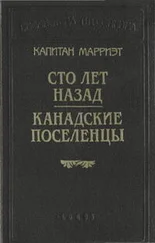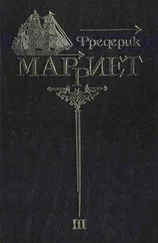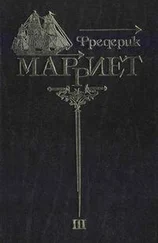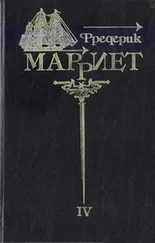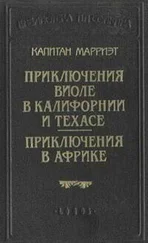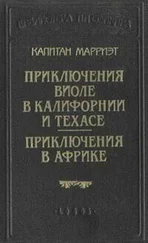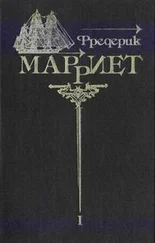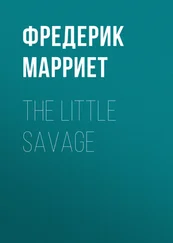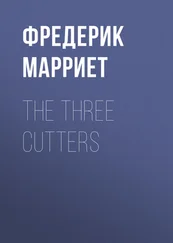Фредерик Марриет - Jacob Faithful
Здесь есть возможность читать онлайн «Фредерик Марриет - Jacob Faithful» — ознакомительный отрывок электронной книги совершенно бесплатно, а после прочтения отрывка купить полную версию. В некоторых случаях можно слушать аудио, скачать через торрент в формате fb2 и присутствует краткое содержание. Жанр: prose_military, literature_19, foreign_antique, foreign_prose, на английском языке. Описание произведения, (предисловие) а так же отзывы посетителей доступны на портале библиотеки ЛибКат.
- Название:Jacob Faithful
- Автор:
- Жанр:
- Год:неизвестен
- ISBN:нет данных
- Рейтинг книги:4 / 5. Голосов: 1
-
Избранное:Добавить в избранное
- Отзывы:
-
Ваша оценка:
- 80
- 1
- 2
- 3
- 4
- 5
Jacob Faithful: краткое содержание, описание и аннотация
Предлагаем к чтению аннотацию, описание, краткое содержание или предисловие (зависит от того, что написал сам автор книги «Jacob Faithful»). Если вы не нашли необходимую информацию о книге — напишите в комментариях, мы постараемся отыскать её.
Jacob Faithful — читать онлайн ознакомительный отрывок
Ниже представлен текст книги, разбитый по страницам. Система сохранения места последней прочитанной страницы, позволяет с удобством читать онлайн бесплатно книгу «Jacob Faithful», без необходимости каждый раз заново искать на чём Вы остановились. Поставьте закладку, и сможете в любой момент перейти на страницу, на которой закончили чтение.
Интервал:
Закладка:
“I was born on it.”
“Yes, so I heard, and all about your father and mother’s death. I was telling Tom of it, because he’s too fond of bowsing up his jib .”
“Well, father, there’s no occasion to remind Jacob; the tear is in his eye already,” replied Tom, with consideration.
“I wish you never had any other drop in your eye ,—but never mind, Jacob, I didn’t think of what I was saying. Look ye, d’ye see that little house with the two chimneys—that’s mine, and there’s my old woman.—I wonder what she’s about just now.” Old Tom paused for a while, with his eyes fixed on the object, and then burst out:—
“I’ve crossed the wide waters, I’ve trod the lone strand,
I’ve triumphed in battle, I’ve lighted the brand,
I’ve borne the loud thunder of death o’er the foam;
Fame, riches, ne’er found them,—yet still found a home.
“Tom, boy, haul up the skiff and paddle on shore with the bundle; ask the old woman how she is, and tell her I’m hearty.” Tom was in the boat in a moment, and pulling lustily for the shore. “That makes me recollect when I returned to my mother, a’ter the first three years of my sea service. I borrowed the skiff from the skipper.—I was in a Greenland-man, my first ship, and pulled ashore to my mother’s cottage under the cliff. I thought the old soul would have died with joy.” Here old Tom was silent, brushed a tear from his eye, and, as usual, commenced a strain, sotto voce :—
“Why, what’s that to you if my eyes I’m a wiping?
A tear is a pleasure, d’ye see, in its way.
“How, miserable,” continued he, after another pause, “the poor thing was when I would go to sea—how she begged and prayed—boys have no feeling, that’s sartin.”
“O bairn, dinna leave me, to gang far away,
O bairn, dinna leave me, ye’re a’ that I hae,
Think on a mither, the wind and the wave,
A mither set on ye, her feet in the grave.
“However, she got used to it at last, as the woman said when she skinned the ells. Tom’s a good boy, Jacob, but not steady, as they say you are. His mother spoils him, and I can’t bear to be cross to him neither; for his heart’s in the right place, after all. There’s the old woman shaking her dish-clout at us as a signal. I wish I had gone on shore myself, but I can’t step into these paper-built little boats without my timber toes going through at the bottom.”
Chapter Nine
Tom then shoved off the skiff. When half-way between the lighter and the shore, while his mother stood watching us, he lay on his oars. “Tom, Tom!” cried his mother, shaking her fist at him, as he stooped down his head; “if you do, Tom!”
“Tom, Tom!” cried his father, shaking his fist also; “if you dare, Tom!”
But Tom was not within reach of either party; and he dragged a bottle out of the basket which his mother had entrusted to him, and putting it to his mouth, took a long swig.
“That’s enough, Tom!” screamed his mother, from the shore.
“That’s too much, you rascal!” cried his father, from the barge.
Neither admonition was, however, minded by Tom, who took what he considered his allowance, and then very coolly pulled alongside, and handed up the basket and bundle of clean clothes on deck. Tom then gave the boat’s painter to his father, who, I perceived, intended to salute him with the end of it as soon as he came up; but Tom was too knowing—he surged the boat ahead, and was on deck and forward before his father could stump up to him. The main hatch was open, and Tom put that obstacle between his father and himself before he commenced his parley.
“What’s the matter, father?” said Tom, smiling, and looking at me.
“Matter, you scamp! How dare you touch the bottle?”
“The bottle—the bottle’s there, as good as ever.”
“The grog is what I mean—how dare you drink it?”
“I was half-way between my mother and you, and so I drank success and long life to you both. Ain’t that being a very dutiful son?”
“I wish I had my legs back again, you rascal!”
“You wish you had the grog back again, you mean, father.”
“You have to choose between—for if you had the grog you’d keep your legs.”
“For the matter of drinking the grog, you scamp, you seem determined to stand in my shoes.”
“Well, shoes are of no use to you now, father—why shouldn’t I? Why don’t you trust me? If you hadn’t locked the cupboard, I wouldn’t have helped myself.” And Tom, whose bootlace was loose, stooped down to make it fast.
Old Tom, who was still in wrath, thought this a good opportunity, as his son’s head was turned the other way, to step over the bricks, with which, as I before said, the lighter had been laden level with the main hatchway, and take his son by surprise. Tom, who had no idea of this manoeuvre, would certainly have been captured, but, fortunately for him, one of the upper bricks turned over, and let his father’s wooden leg down between two of the piles, where it was jammed fast. Old Tom attempted to extricate himself, but could not. “Tom, Tom, come here,” cried he, “and pull me out.”
“Not I,” replied Tom.
“Jacob, Jacob, come here; Tom, run and take the helm.”
“Not I,” replied Tom.
“Jacob, never mind the helm, she’ll drift all right for a minute,” cried old Tom; “come and help me.”
But I had been so amused with the scene, and having a sort of feeling for young Tom, that I declared it impossible to leave the helm without her going on the banks. I therefore remained, wishing to see in what way the two Toms would get out of their respective scrapes.
“Confound these—! Tom, you scoundrel, am I to stick here all day?”
“No, father, I don’t suppose you will. I shall help you directly.”
“Well, then, why don’t you do it?”
“Because I must come to terms. You don’t think I’d help myself to a thrashing, do you?”
“I won’t thrash you, Tom. Shiver my timbers if I do.”
“They’re in a fair way of being shivered as it is, I think. Now, father, we’re both even.”
“How’s that?”
“Why you clapped a stopper over all on me this morning, and now you’ve got one on yourself.”
“Well, then, take off mine, and I’ll take off yours.”
“If I unlock your leg, you’ll unlock the cupboard?”
“Yes.”
“And you promise me a stiff one after dinner?”
“Yes, yes, as stiff as I stand here.”
“No, that will be too much, for it would set me fast . I only like it about half-and-half, as I took it just now.”
Tom, who was aware that his father would adhere to his agreement, immediately went to his assistance, and throwing out some of the upper bricks, released him from his confinement. When old Tom was once more on deck and on his legs, he observed, “It’s an ill wind that blows nobody good. The loss of my leg has been the saving of you many a time, Mr Tom.”
It was now time to anchor, as we were meeting the flood. Tom, who officiated as cook, served up the dinner, which was ready; and we were all very pleasant; Tom treating his father with perfect confidence. As we had not to weigh again for some hours, our repast was prolonged, and old Tom, having fulfilled his promise to his son of a stiff one , took one or two himself, and became very garrulous.
“Come, spin us a good yarn, father; we’ve nothing to do, and Jacob will like to hear you.”
Читать дальшеИнтервал:
Закладка:
Похожие книги на «Jacob Faithful»
Представляем Вашему вниманию похожие книги на «Jacob Faithful» списком для выбора. Мы отобрали схожую по названию и смыслу литературу в надежде предоставить читателям больше вариантов отыскать новые, интересные, ещё непрочитанные произведения.
Обсуждение, отзывы о книге «Jacob Faithful» и просто собственные мнения читателей. Оставьте ваши комментарии, напишите, что Вы думаете о произведении, его смысле или главных героях. Укажите что конкретно понравилось, а что нет, и почему Вы так считаете.

